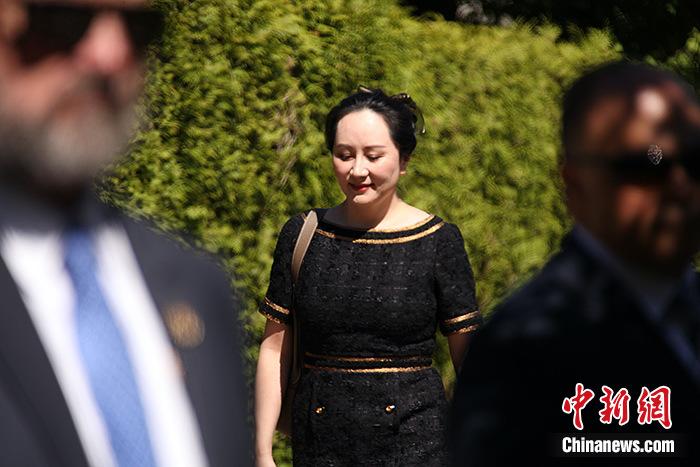China News Service, Toronto, August 6 (Reporter Yu Ruidong) The extradition case of Meng Wanzhou, vice chairman and chief financial officer of Huawei, is currently undergoing the final round of trial before the first extradition judgment in the High Court of British Columbia in Vancouver, Canada.
The court concluded the third branch of the debate on the issue of "procedural abuse" on August 6.
Data map: Meng Wanzhou.
Photo by China News Agency reporter Yu Ruidong
Meng Fang’s lawyer believes that there is “procedural abuse” in this case, so the extradition procedure should be suspended and the specific statement will be divided into four branches.
In the third branch, the Bangladeshi side believes that the case materials provided by the United States to Canada contain major misunderstandings and omissions of facts, which violate the extradition country’s obligation to provide prudent, frank, and accurate materials, and constitute procedural abuse.
The United States alleged in its case materials that Meng Wanzhou’s presentation slide (PPT) statement made to an HSBC executive in Hong Kong in August 2013 was related to the relationship between Huawei and Skycom. "Misled" HSBC and made HSBC decide to maintain its relationship with Huawei and continue to provide Huawei with banking services including processing USD transactions.
Meng argued to the court that the US selectively omitted two pages of slides that were highly relevant to the case, including important information such as "Huawei controls Xingtong's operations in Iran".
Meng Fang’s lawyer also believes that in terms of settlement, HSBC would have had other ways to avoid potential violation risks.
However, HSBC did not choose other channels, and the responsibility was not on Meng Wanzhou's side.
At the same time, there is evidence that before Meng made the PPT statement, senior HSBC employees had known the relationship between Huawei and Xingtong, and HSBC had made business decisions related to Xingtong.
Previously, Meng Wanzhou tried to apply for the introduction of new evidence obtained from HSBC into the third branch in late June.
But the presiding judge's ruling on July 9 rejected this request.
From early March to early April, the prosecution and defense have focused on the first branch of "procedural abuse", which is political motivation, the second branch, which is suspected of illegal detention, and the fourth branch, whether the U.S. extradition request violates customary international law. The question is debated in court.
This round of trial started on August 4 and is expected to last until August 20.
After the court debate on all four branches of "procedural abuse" is over, the court will discuss the judicial remedy claimed by the defense in the follow-up trial, and then enter the detention pending trial. The defense will respond to the prosecution on the issue of the adequacy of evidence from the United States. Advocate.
After all the content of the trial is over, the prosecution and defense will wait for the judge to make a decision on whether to extradite Meng Wanzhou to the United States.
(Finish)

